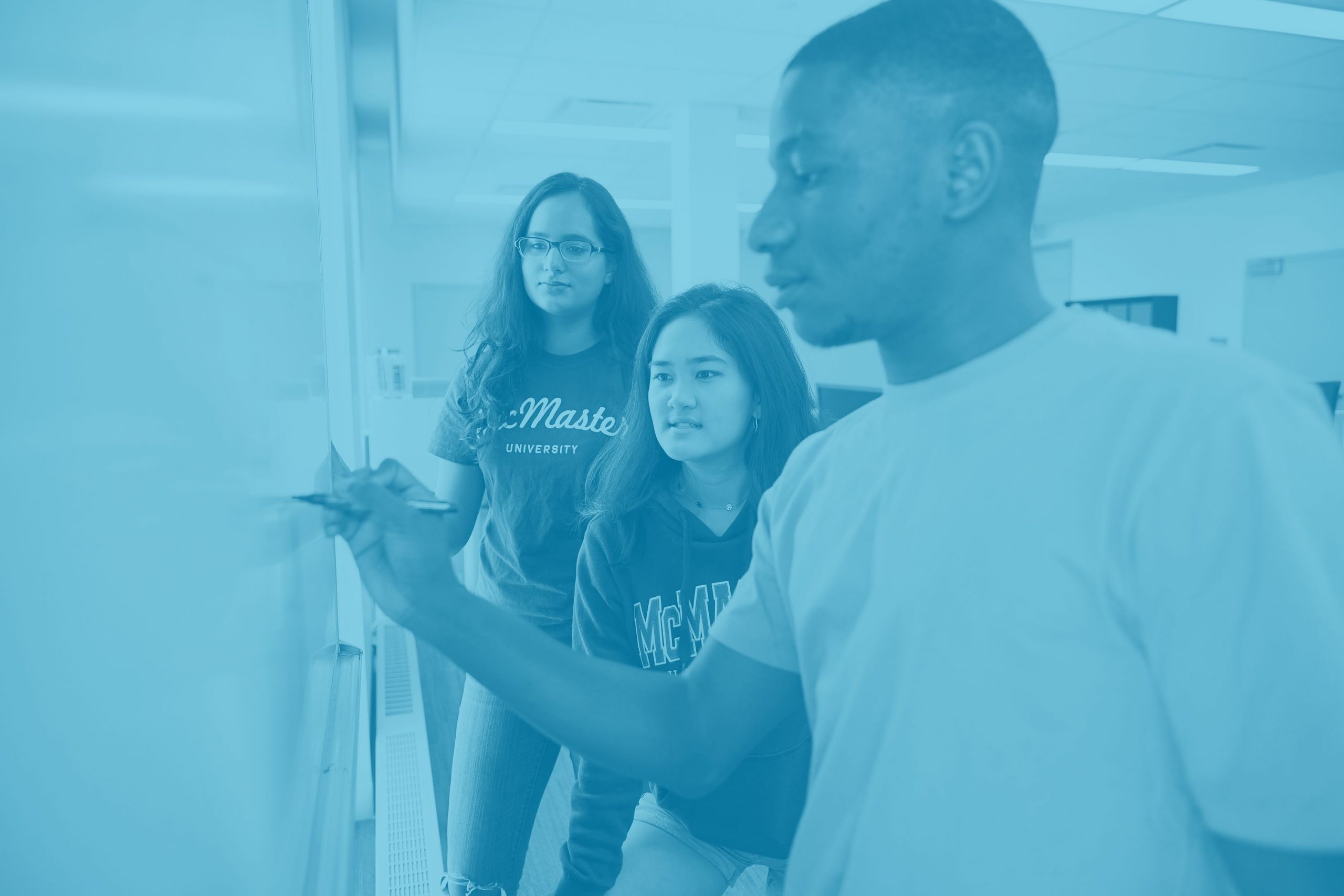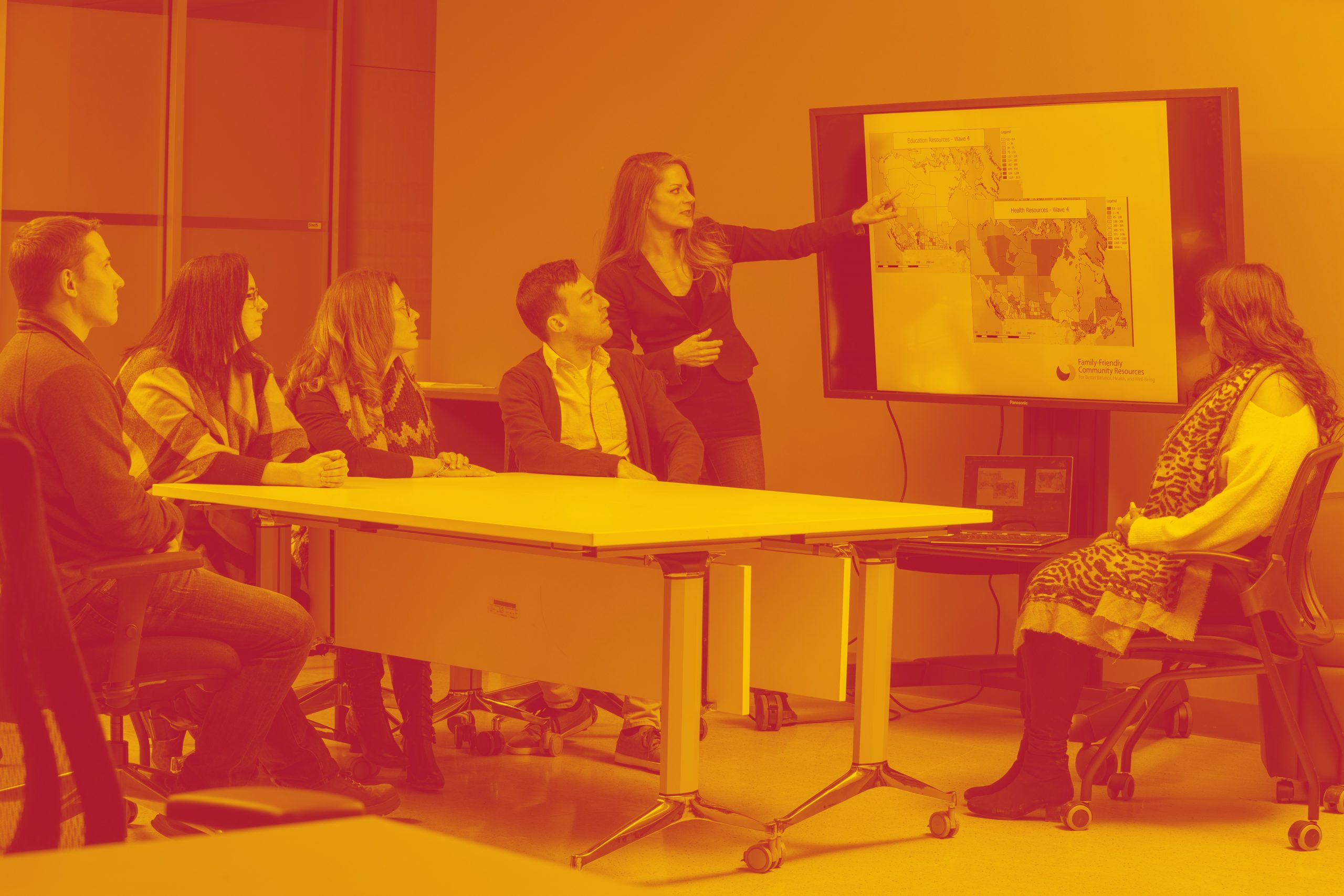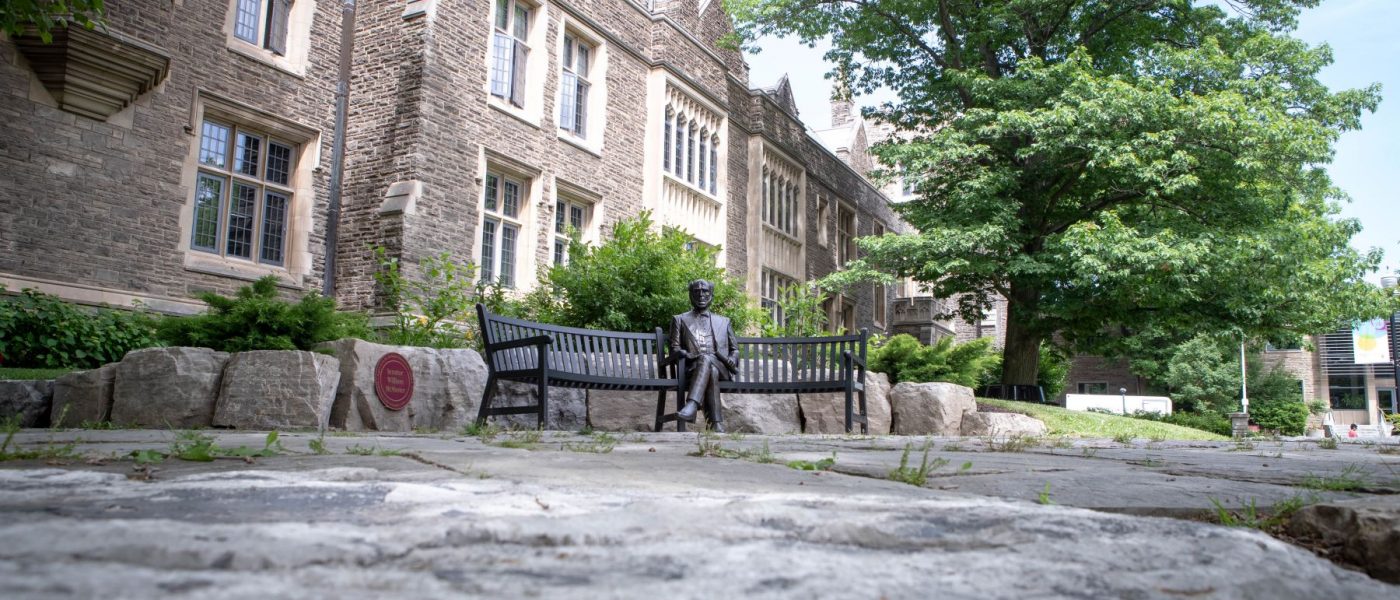
An Experiential Learning Framework as a Guiding Tool
McMaster’s Experiential Learning Strategic Framework outlines strategies and activities to support and scale experiential learning at McMaster between 2024 and 2029 in alignment with other institutional priorities, including McMaster’s Strategic Mandate Agreement 3 (SMA3) and Partnered in Teaching & Learning Strategy. The Framework was developed collaboratively in 2023, in consultation with hundreds of students, staff, and faculty at McMaster and with a deep recognition of and appreciation for the existing EL knowledge, experience, and expertise they hold. The vision and mission of the Framework are outlined below:
Vision
McMaster graduates have the skills, experience, and confidence to lead lives guided by both a sense of self and a sense of purpose to make a positive impact in the world.
Mission
By 2029, 84% of McMaster undergraduate students will have participated in an accessible and supportive Faculty-based or campus-wide experiential learning opportunity that is transformative and lasting beyond their time at McMaster.
McMaster’s Definition of Experiential Learning
Experiential Learning: Experiential learning provides students with a structured learning opportunity to apply academic knowledge in a hands-on environment with a focus on developing skills and knowledge, fostering reflection and the development of self, and preparing students to make a difference in the world.
- Structured Learning Opportunity: An opportunity that works toward supporting students’ achievement of a set of intended learning outcomes.
- Academic Knowledge: Knowledge that students bring to the experience from the opportunity itself or from their past academic coursework.
- Reflection: An intentional process that students are guided through in which they make connections between the learning experience, their academic knowledge, and their sense of self.
Components of McMaster's EL Strategic Framework

Improve Collaboration Learn More
Staff and faculty across Faculties and central units should be connected, coordinated, and working together to identify and address areas for EL improvement, building institutional capacity for transformative EL experiences.

Coordinate Communications Learn More
Let’s foster a community where students, staff, faculty, and external stakeholders have an increased awareness of the benefits of EL, and EL opportunities and supports available at McMaster.

Develop and Sustain Infrastructure Learn More
We strive towards ensuring that transformative EL opportunities are adequately resourced and available to a target number of students in each Faculty and across McMaster.

Evaluate, Celebrate, and Share Our Learnings Learn More
We aim to develop a culture of experimentation, ongoing learning, and continuous improvement for EL that enables staff, faculty, and students to recognize, reflect, celebrate, and enable quality EL at McMaster and beyond.

Develop and Support Students Learn More
We aim to work towards an environment where students: a) have flexible opportunities for participation; b) feel supported before, during, and after their experience; and c) are recognized and celebrated.

Develop and Support Faculty and Staff Learn More
Faculty and staff should be supported in their delivery of quality EL via adequate resources (people, tools, technologies, etc.), subject-matter experts, and coordination of activities that advance EL at McMaster.

Develop and Support Community Partners and Employers Learn More
We aim to ensure partners are supported in their partnerships. In doing so, they will better understand how to engage, see a benefit from partnering, and will be eager to maintain partnerships.

